This story originally appeared in i-D’s The Royalty Issue, no. 370, Winter 2022. Order your copy here.
070 Shake is cool – but not the kind of cool where she becomes lost in ego, or where her elusiveness appears annoyingly intentional. She has yet to reach the inevitable collapse that comes from building up a version of yourself that rises uncontrollably beyond the art and swallows you whole. She is easily misconstrued, though: she has the mysterious demeanour, all-leather outfits, long dark hair, and despairing vocals that could easily stereotype her as a tormented romantic. But, really, Shake is the kind of cool that leads with an enlightened prophetic force; the kind that welcomes people into her world rather than excludes them. She isn’t untouchable. Instead, she throws herself into the pit at her concerts to feel the energy of the crowd, physically embracing the masses of people.
Recently in New York, while playing a hazy and evangelical sold out show at Terminal 5, she stopped the concert for an impromptu moment of group meditation with the crowd, complete with reality-checking deep breaths and sermons about unifying for the love of music. “My whole message is that I want to bring people together,” she explains over the phone to me from Barcelona, in the middle of her European tour. “It’s possible to unify people and we’re more powerful that way. So if I have the ability to do that, and to influence people in a positive way, I will.”
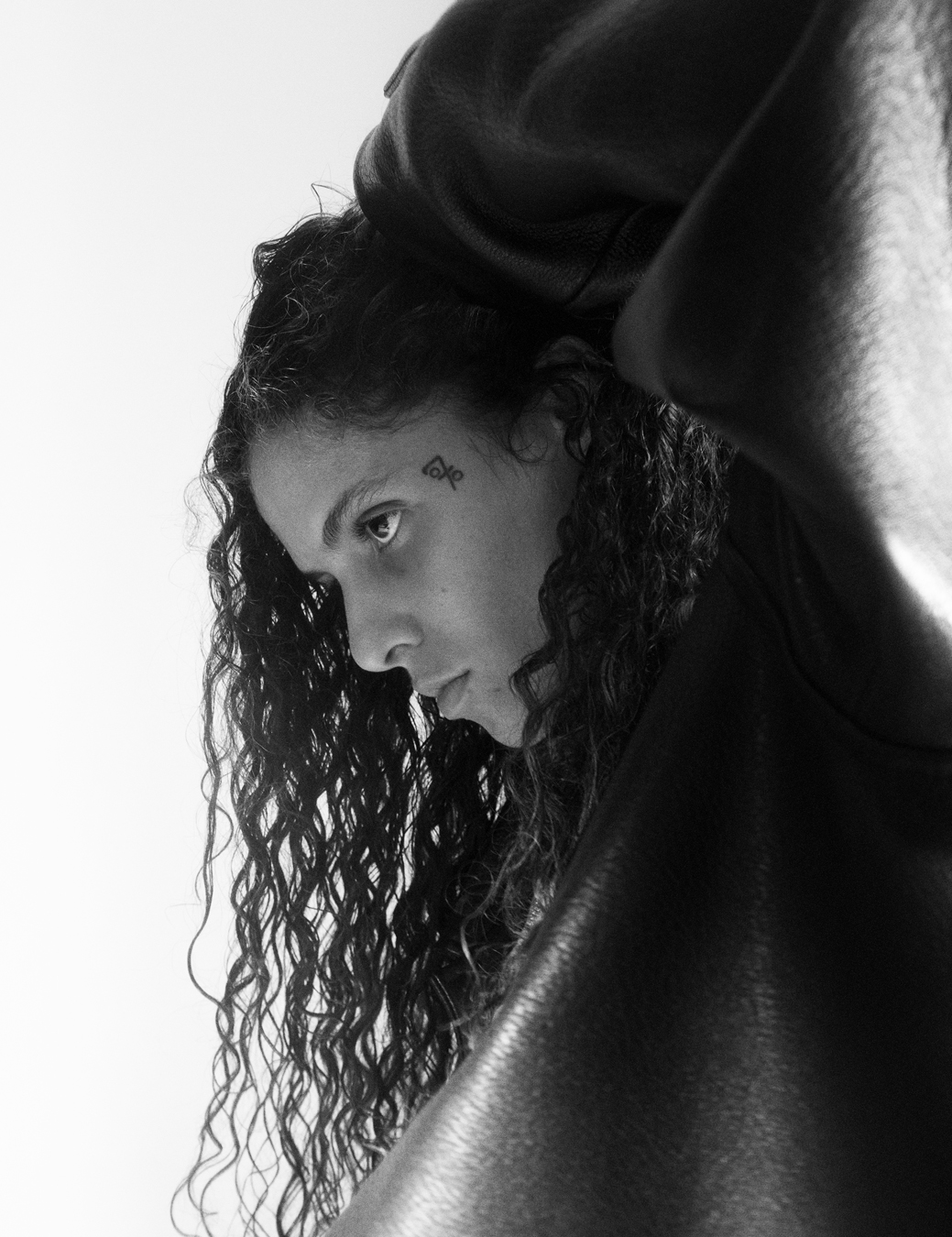
Shake draws this sentiment of gathering under one roof from her upbringing in the church. She learned how to sing there with her aunt and uncle, and she recalls having a deeply emotional reaction to the hymns. “I definitely felt the music, but I didn’t realise what it was doing and why I was feeling the way I did towards it,” she reflects. You can hear the feeling of religious ecstasy that pours into the music she makes now.
She remembers the first piece of pop music she discovered herself that evoked that same feeling: “I grew up listening to a lot of Alicia Keys. I discovered her album Element of Freedom and that’s something that felt like church music to me when I listened to it.”
Subscribe to i-D NEWSFLASH. A weekly newsletter delivered to your inbox on Fridays.
Growing up in North Bergen, New Jersey, the singer found herself getting in trouble in school and feeling othered. “I was pretty lonely until I saw that the world was bigger than the town I grew up in,” she says and, while the exclusion she felt from her peers might have been a hindrance to her upbringing, it also led her to start making music herself: she admits that she “only started making music because I felt misunderstood.” Throughout her new album, titled You Can’t Kill Me, there are lessons in turning pain into art. But, she explains, this development happened through “divine timing. I’m here as who I am, and wherever I am because of it, I think it is responsible for everything.”
Outside of school, Shake carved out her artistic identity through poetry, then in 2016, the singer seized the spotlight when her emotionally baring song “Proud” found her in G.O.O.D Music’s inner circle. Suddenly, she went from writing poetry quietly in her bedroom to belting the roots of her songwriting in a billowing cadence. After landing on hit songs like “Ghost Town” and “Violent Crimes” from Kanye’s 2018 Ye album, Shake went on to release her first album, Modus Vivendi, in 2020. Modus Vivendi was a harrowing and soaring record that dealt with monogamy, drugs, and staking your claim on the world.
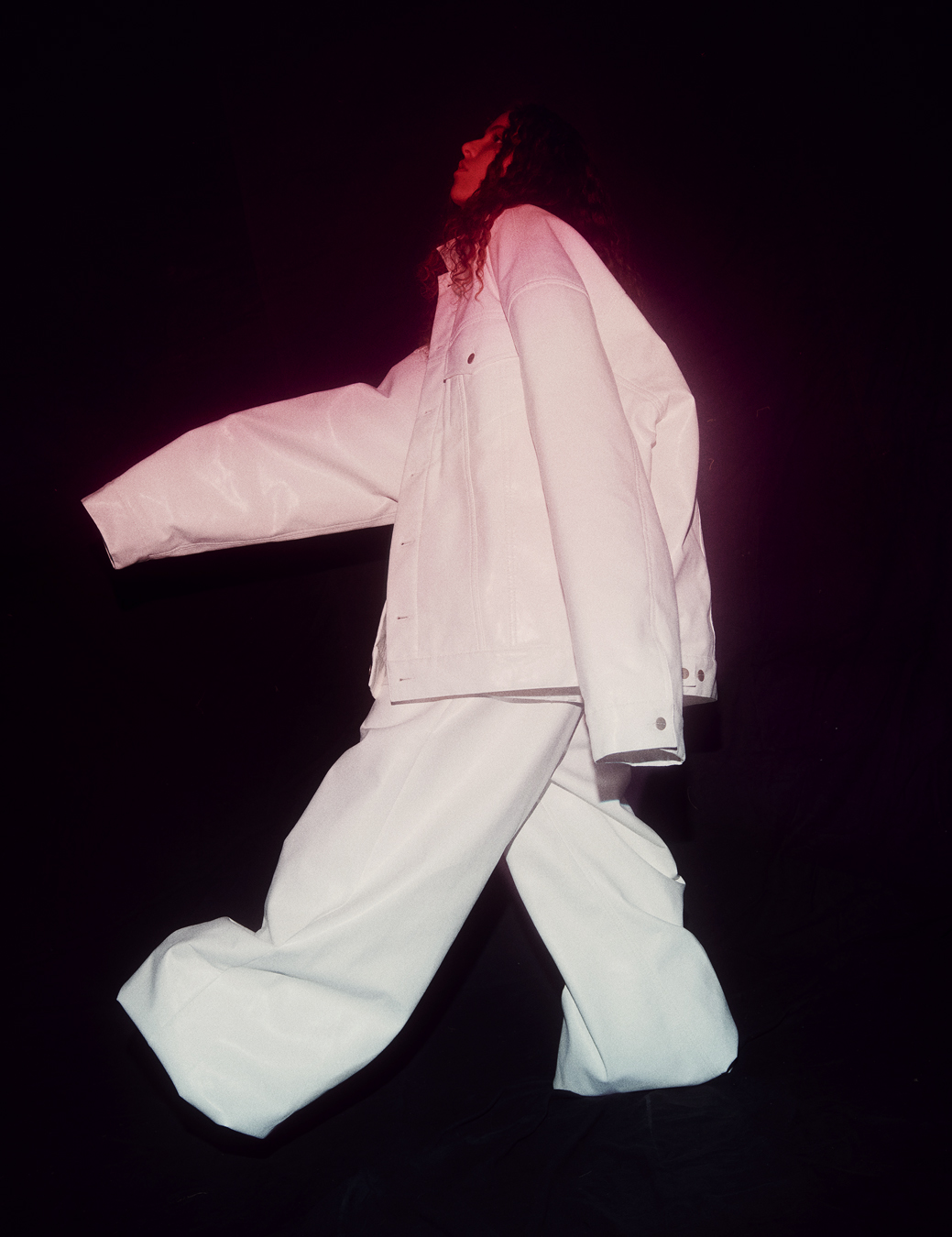
Talking to Shake, it is obvious that she has an uncompromising belief that she’s doing exactly what she was destined for. “I still have some things to learn and work on within myself, but I understand the mission and I’m working towards it,” she says. As she leads listeners into a delicate space between the physical and spiritual world on “You Can’t Kill Me”, she asks the question: “how far am I willing to go to represent my art?”
Recently, in downtown Manhattan, she directed an art performance disguised as an album release event where she poured fake blood, sand, and feathers onto herself in front of a crowd of spectators. “I was trying to represent what “You Can’t Kill Me” meant to me, in a way,” she explains of the performance. “I don’t care what happens to me physically because I can transform myself.” At first glance, the sentiments of the album’s name seemingly represent a boast of untouchability but, in actuality, it’s an expression of the strained relationship she has with the digital world. The butterfly effect happens when Shake deletes her social media accounts, and suddenly disappears from public space. “You can’t kill me because I don’t exist,” she explains.
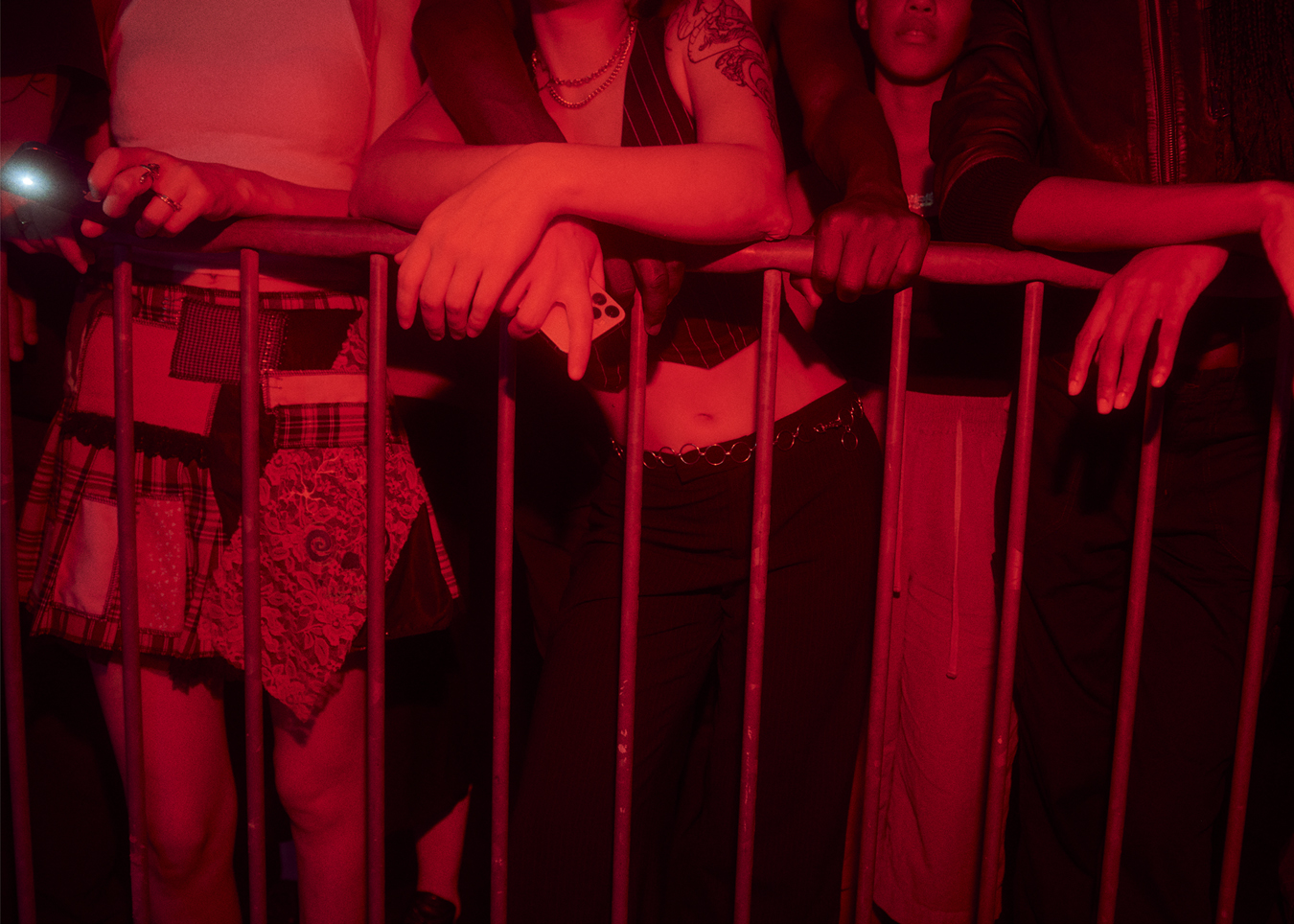
Shake has never been fond of the roles we are meant to perform in our everyday lives and the identities we get stuck with. “I feel like labels kind of just take me further away from my true identity,” she says. “I don’t have to say that I’m non-binary, I can just say that I’m human, and that simplifies everything. It’s a contradiction when you are putting labels on yourself and are also asking to be seen as one with everybody,” she says. “If we’re going to be one, let’s just go towards that, you know? I can’t be put into a group. I feel like that in every single aspect of my life.” That sentiment extends to her music, too, with reviewers and listeners unable to decide exactly what’s vibrating through their speakers when 070 Shake is playing.
“You Can’t Kill Me” tells the story of a relationship from beginning to end, with all of the ebbs and flows and shifts that it contains. It was inspired in part by a recent break-up and how, as part of that process, she had “gained truth” within herself. “I had to learn to be alone,” she says. “I had to turn to myself and find comfort within myself. I had never done that before.”
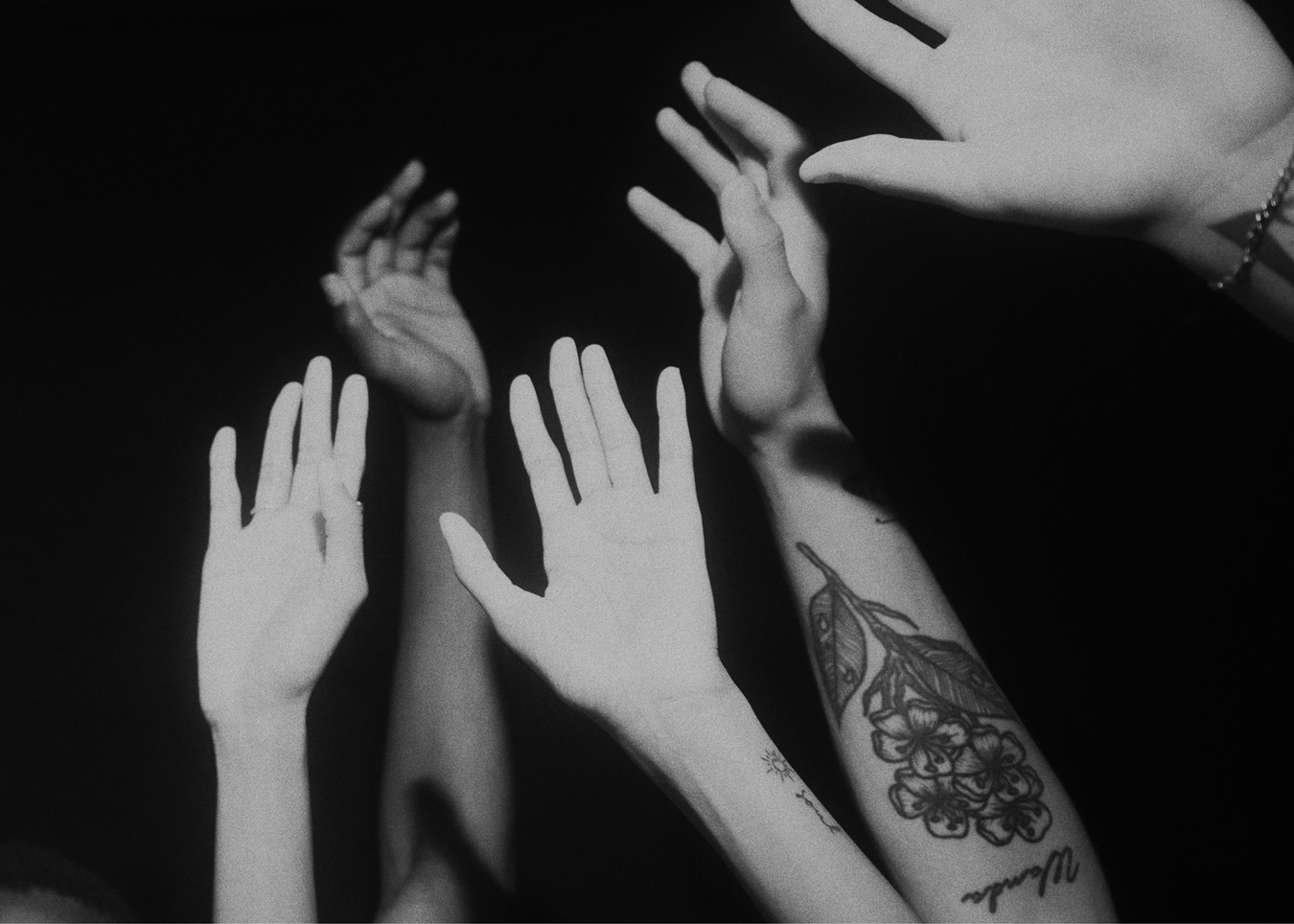
While she’s using the pain inherited from old lovers as new inspiration, Shake’s main mission always comes down to creating something new, undiscovered, and pure.
Shake often describes the music she makes as frequencies rather than sounds: “If I’m creating music, it means I’m experimenting, which means I’m a scientist,” she explains. And creating an experimental, musical space for herself during the making of the album was fundamental to the process; she would create frequencies in her “lab” and paint the visuals for the sonic landscape she was constructing. “We’d put that lab coat on and just really get in the mood and get into character.”
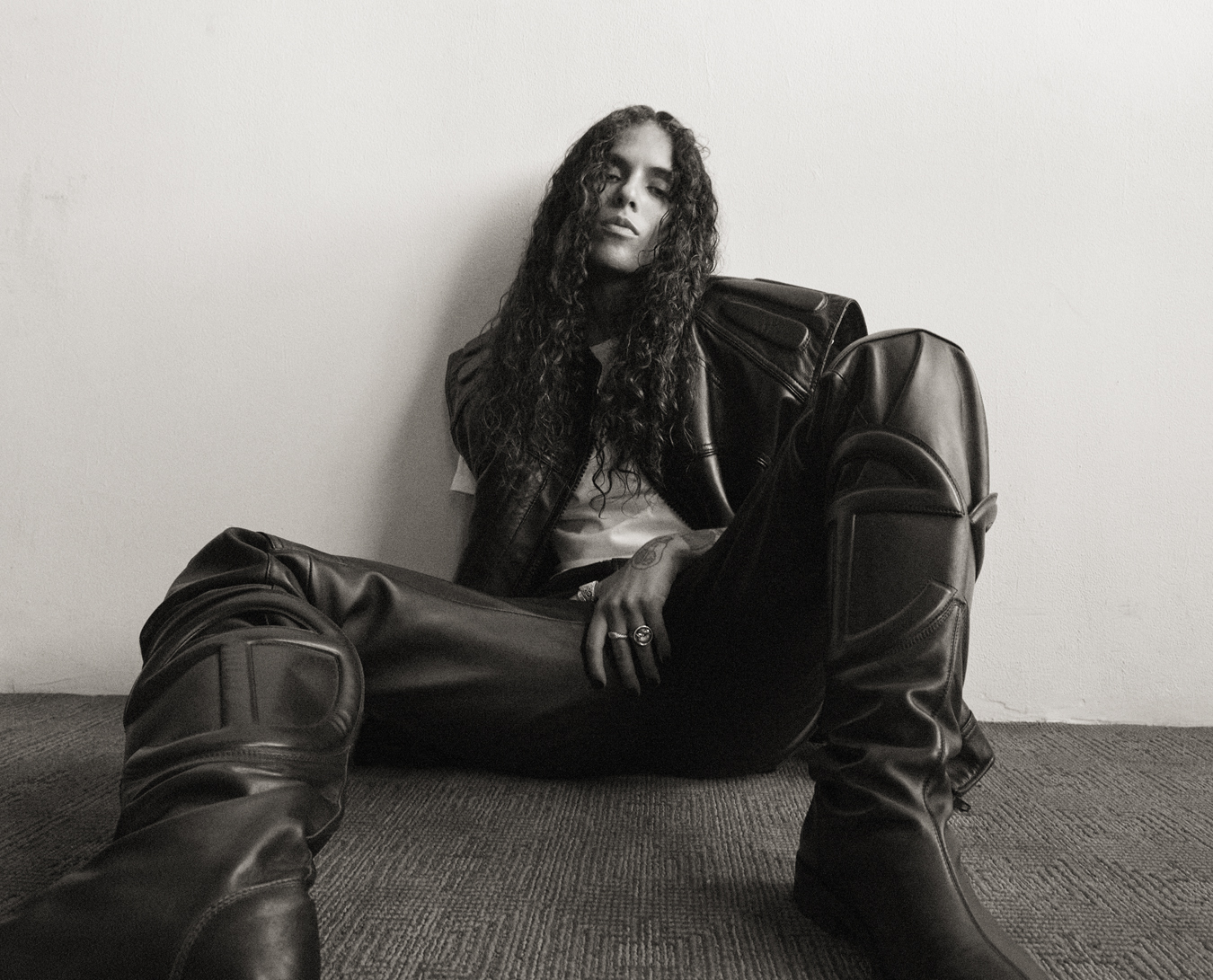
“I made this promise to myself that I’m going to always be the last person I go to when it comes to music,” she says. And she continues to surprise herself with her ambition. “I just do anything I want in music. Sometimes throughout the song, I get bored, and I’m just like this needs movement.” That movement translates to pinching synths, melancholic chords, and grounding bass that all dance together.
The music she creates is full of unorthodox subversions and strikingly true emotions, and this is the reason why she feels so enduring and important as an artist. The ultimate freedom and chaos that her music portrays peaks into her ever-evolving character as she continues to carve out a space for herself in this world.
Her music is electric, innovative and cathartic. But what ties it together is the authenticity of the sentiment that underpins the performance: there is something purging and restorative to Shake that lives within the melancholic persona she leans into, and the fragile and harmonic layer underneath.
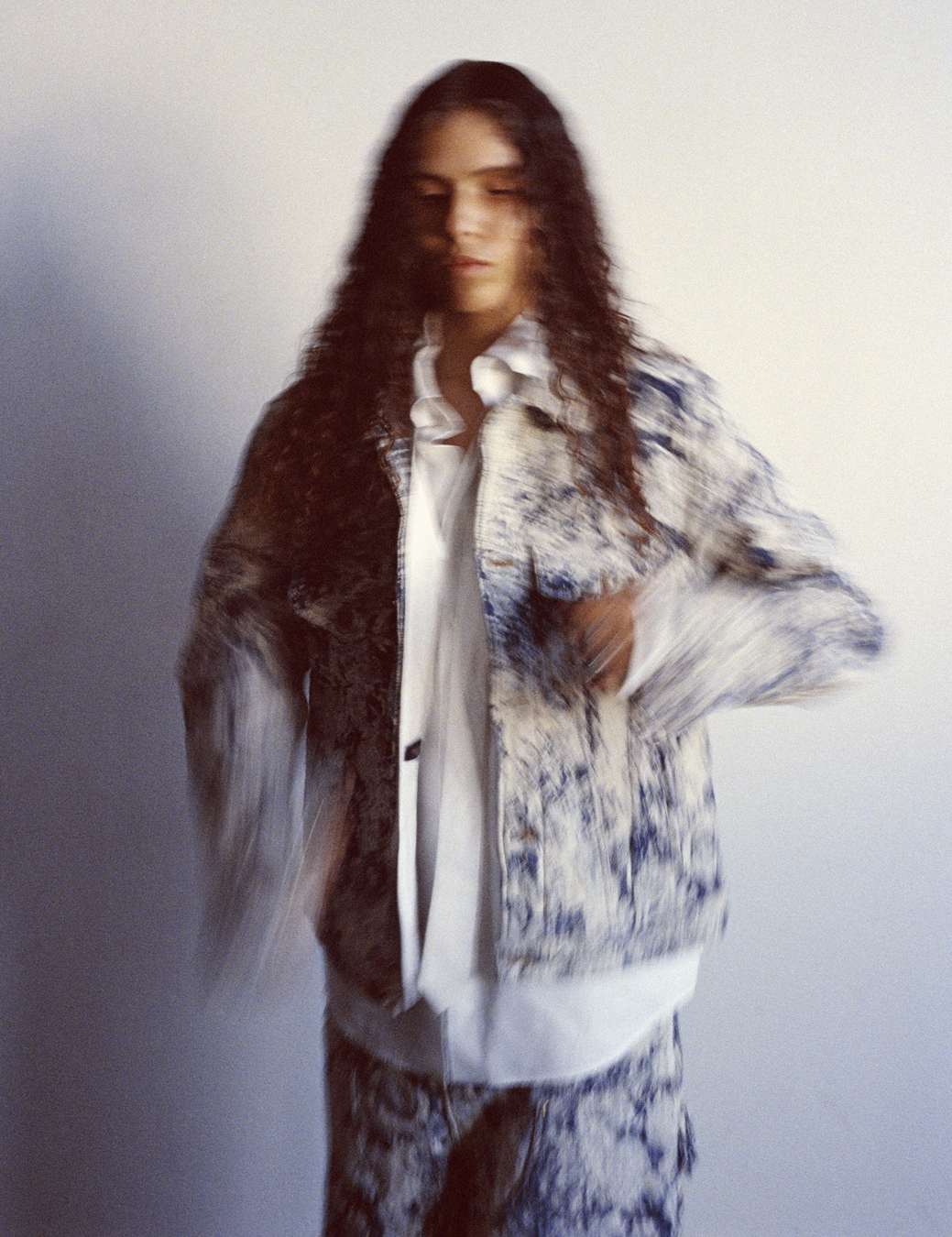
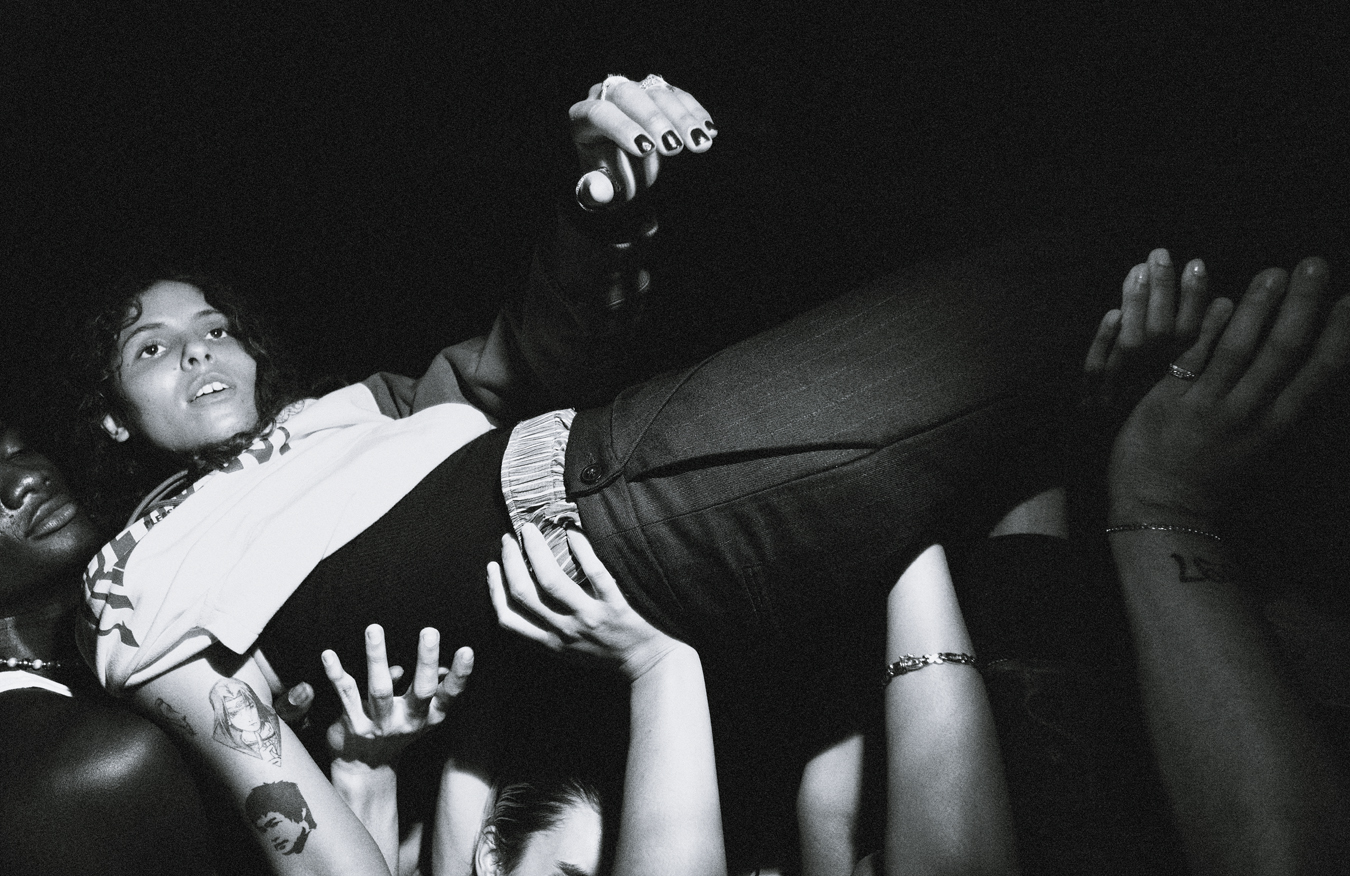
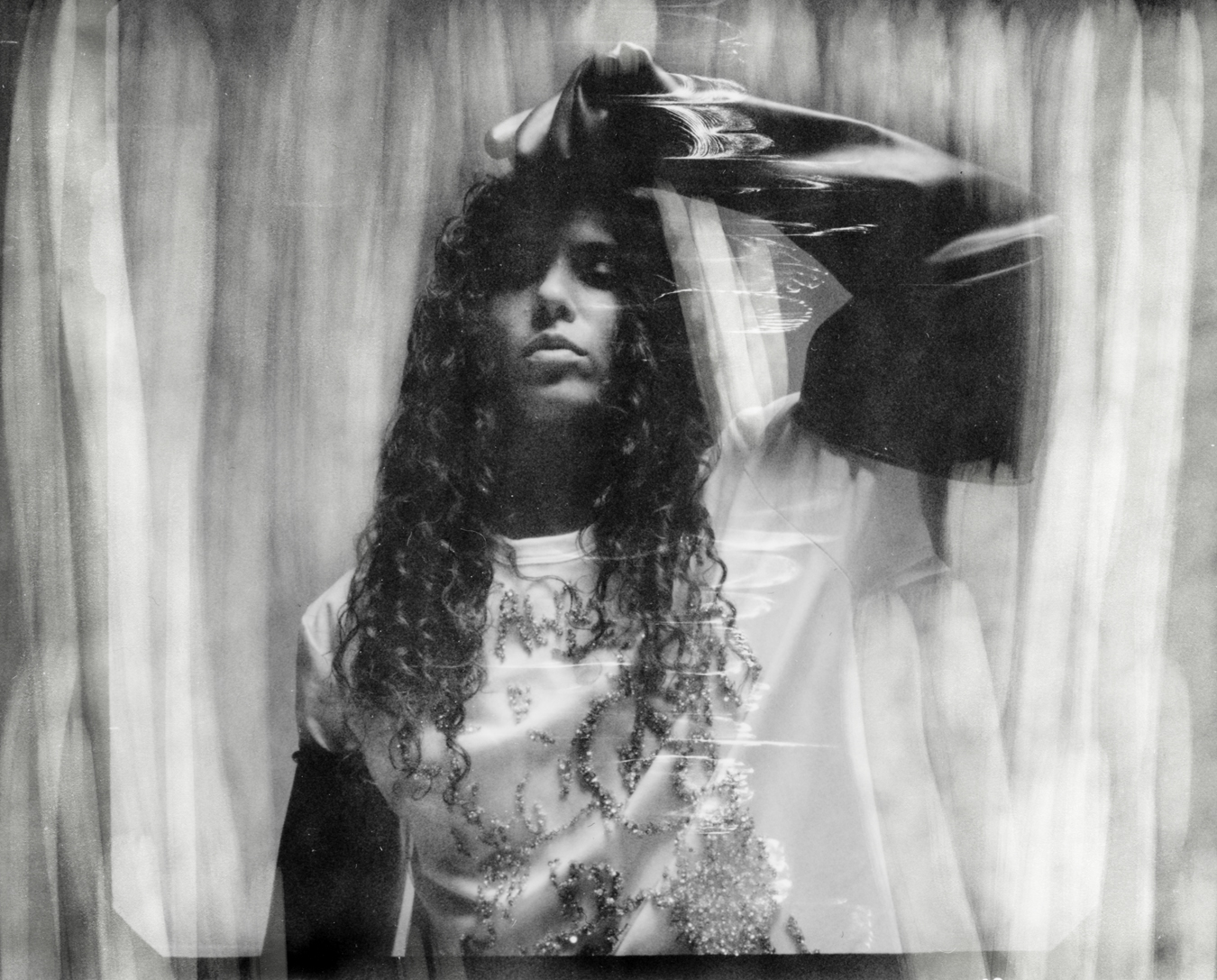
Credits
Photography James Brodribb
Fashion Milton Dixon III
Hair Tina Outen at Streeters
Makeup Jen Miles at Streeters
Nail technician Liang
Set design Cooper Vasquez at Frank Reps
Lighting director Andrew Blumenthal
Photography assistance Austin Withers
Digital technician Hope Christ
Fashion assistance Share Koech and Shanese Diana
Tailor Taylor Spong
Hair assistance Marvin Tarver
Makeup assistance Anna Kurihara
Set design assistance Brian Park and Tucker Elkins
Production Block Productions
Casting director (070 Shake) Samuel Ellis Scheinman for DMCASTING
Casting (extras) Memoria Di


